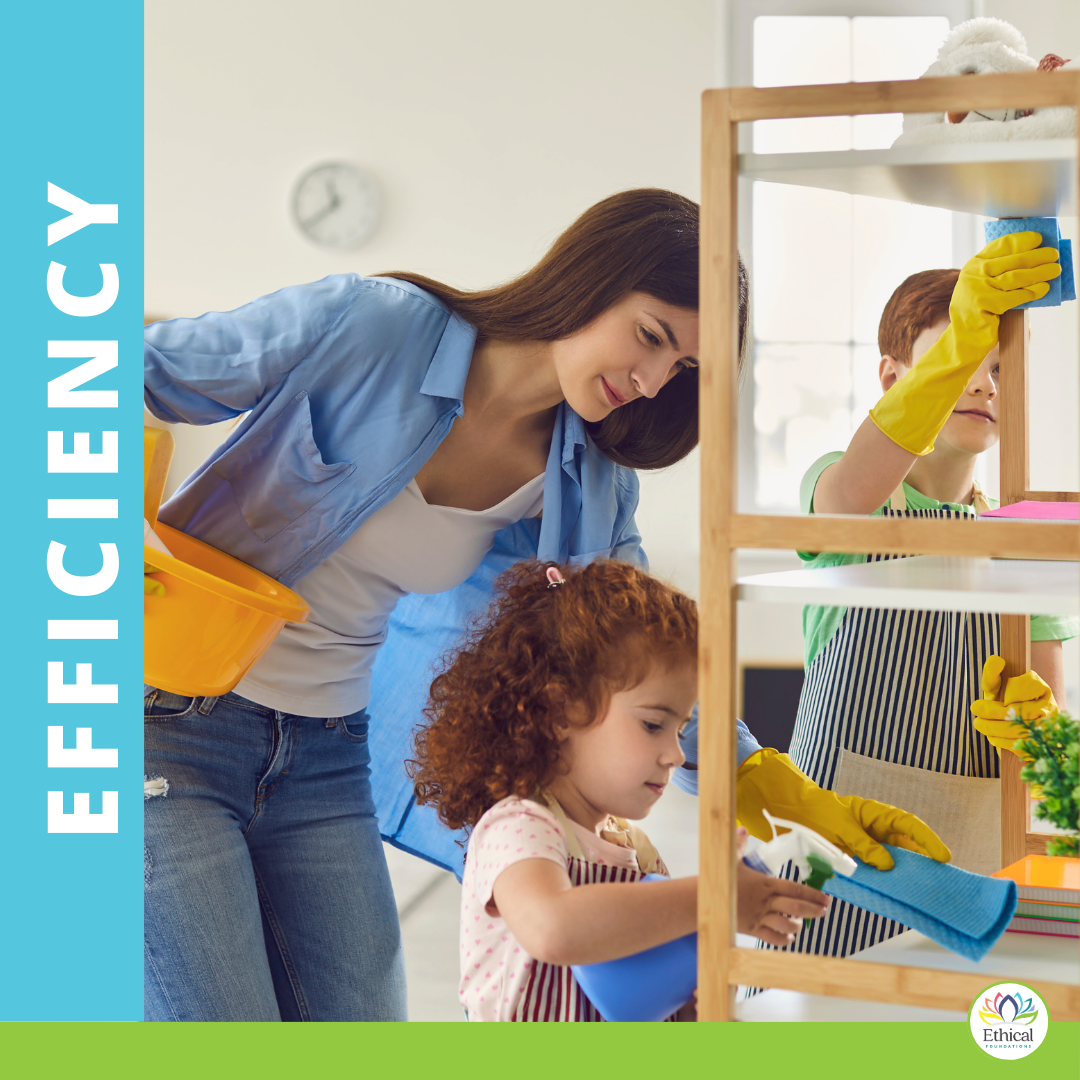04 Mar EFFICIENCY
Teaching kids the power of efficiency is beneficial to any household and person.
Therefore when children practice efficiency they feel they have control over some aspects of their lives and, like everyone else, like feeling in control.
Efficiency is crucial in any household that wants to go from chaos to calm.
Additionally, efficiency is easily role-modelled by parents and then explained.
While raising your child, many examples of efficiency can be shown and explained.
A few things a young child could do to practice efficiency is creating some habits such as:
1. They pick up their toys and placing them back where they belong.
2. They clean their teeth after breakfast and return their toothbrush and toothpaste to where they got them.
3. Placing their plates, cutlery, and drink containers on the kitchen bench near the sink when they have finished their meals.
Teaching your child that everything has a place and to return things to their usual spot so they can easily find it the next time they need it is an example of efficiency.
For example, if a parent puts their keys in a specific spot each time they return home, they role model the efficiency of quickly finding the keys when they want them next time.
Finding keys is a simple action that many people need to do. However, many people waste an extraordinary amount of time looking for something they need just because they have not established an efficient habit or system.
Although many aspire to be more efficient, some people are efficient, even though their work desk might not look like they could easily find a document. Yet they miraculously do.
We are all different, and what’s important is that you are mindful of your role-modelling for your child.
Children require guidance, and parents must be mindful of their actions.
What children experience, observe, and hear in their early years can often become ingrained in their subconscious.
Recently, I watched a show about decluttering and organisation. The 6-year-old child didn’t want to part with any of her toys, which she had in abundance.
Obviously, not wanting to part with her things was a learnt behaviour from her parents, who desperately wanted and needed to improve their living conditions.
What the parents role-modelled in the past and what they will role-model in the future to their child may be vastly different.
Although the parents decided to donate most of their child’s toys, and the child may have been unhappy about it, the child was thrilled to live in a spacious, organised and beautiful home.
Parenting has its challenging moments; sometimes, making decisions requires long-term thinking. Reaping benefits in the long term is the goal for both parents and children.
Robert Kiyosaki stated, “Remember, the easy road often becomes hard, and the hard road often becomes easy.”
Although I suspect he was talking about finances, it also relates to every other area of life, including parenting.
Which road do you want to take?

- Trish
- March 4, 2024
- 6:33 am

Sorry, the comment form is closed at this time.